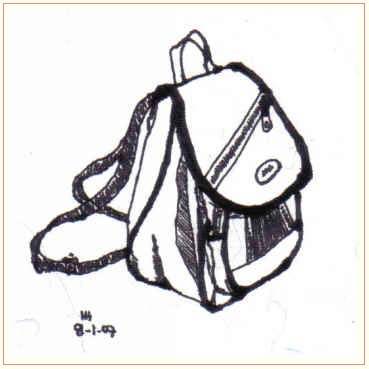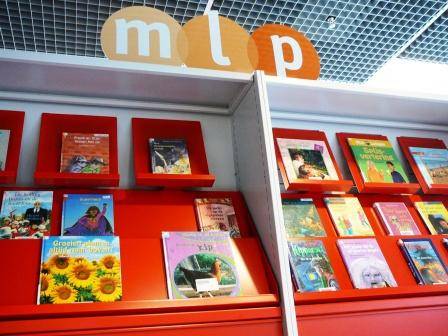
One international parents writes: I'd like to try and explain the system for primary age children with special needs here in the Netherlands (speciaal onderwijs). First a caveat: we have only been here for just over two years and don't have an exhaustive knowledge of how everything works as we have only been down one road with our son. However, generally speaking the system here is more complicated than in many other Western countries, such as the UK, where special needs children are generally integrated into normal schools by means of having classroom assistants and special needs co-ordinators.
If you know or suspect that your child has learning difficulties then you speak to your primary school as soon as possible, as things can drag on. The school can then arrange for your child to be tested for various things. If your child is not a native Dutch speaker then you will probably need to arrange for an IQ test to be performed in his or her mother tongue as IQ must always be tested independent of language. We found a fantastic Canadian child psychologist based in The Hague who did this for us. We had to pay for it ourselves as it was not covered by our basic healthcare insurance, but the € 1000 were most definitely well spent and in addition to the diagnosis we received lots of help and advice from our psychologist.
Once you have a diagnosis this will start opening doors. We personally found an organisation called
MEE (www.meezhn.nl) to be a lifesaver. They specialise in supporting all people with learning difficulties or physical handicaps. We had help from them in form filling, applying for a PGB (see below), finding an appropriate school, and help in dealing with difficult behaviour at home (via a sort of super-nanny!). MEE can come with you to meetings with other organisations and are able to translate for free any Dutch documents into English for you. Formerly a charity, they are now largely government funded, but remain independent. A highly recommended first stop on your journey.
One HomeinLeiden reader wrote to us to let us know that the MEE is required to provide a translator for you if you don't speak Dutch. When she first arrived in the Netherlands with a special needs child, she was told by the MEE that they couldn't help her unless she brought in a Dutch-speaker with her. Other branches of the MEE, when they heard her story, were horrified. So do be aware that they cannot turn you away, even if you don't speak Dutch!
Jeugdzorg: Diagnosis establishment, bout offers advice and support too.
Kristal: support organisation for psychiatric or learning difficulties. They test for certain conditions such as ADHD. You need to be referred by either your doctor or by Jeugdzorg.
Don't be afraid to ask for help! We have been pleasantly surprised how helpful the different organisations we have dealt with have been, as well as the amount of support on offer here.
Confusingly there are two systems in existence. Cluster schools and special schools! Special schools (speciaal basisonderwijs scholen, SBOs) are for children with milder needs such as low IQ, ADHD, development delay, etc. Cluster schools are for more specific needs.
Cluster 1: for visually handicapped children, or multiple handicapped children with a visual handicap
Cluster 2: for deaf or hard-of-hearing children, children with severe speaking difficulties or multiple handicapped children with one of these handicaps
Cluster 3: for physically handicapped children, children with severe learning difficulties (ZMLK), long term sick children with a physical handicap or multiple handicapped children with one of these handicaps
Cluster 4: for children with severe behavioural difficulties (ZMOK), long term sick children other than with a physical handicap or children in schools connected to a special needs institute
Finally there is detached support (ambulante begeleiding) where pupils in normal schools are supported by peripatetic special needs teachers from a cluster school.
Applications for SBOs are processed by the Permanente Commissie Leerlingenzorg (PCL) and the forms are completed together by the parents and the special needs co-ordinator at the current primary school.
Applications for cluster schools are processed by the Commissie voor indicatiestelling (CVI), which is different for each cluster.
There are also special secondary schools, that generally follow the same system as primary schools.
A PGB is a 'personal budget' that people can apply for who have a medical diagnosis for certain disabilities, including mental impairments. The money comes from the AWBZ (Algemene Wet Bijzondere Ziektekosten, or general law for special healthcare costs), so you must be paying into this fund, normally via having a job. Additionally you have to be resident in the Netherlands for more than one year. To apply for a PGB for your child you must normally go through Jeugdzorg d , or for children with an IQ of less than 70 you apply through the CIZ. The deciding body will determine how much you are entitled to and in which categories you can spend the budget on.
You can spend a PGB for one of two things: either for buying in help from one institution that will look after everything, called zorg in natura ; or you can opt to receive the money yourself and pay professionals, or institutions yourself. This second option also means that family members and friends can be paid to help look after your child. This requires that you do all your own paperwork (in Dutch!).
As an example, we receive money for our son that allows us to pay for him to go away an activity weekend with an approved organisation for one weekend per month. This allows us to spend quality time with his younger brother, and have a break from a demanding child. Furthermore, we pay his mum for several hours a week for the extra time and attention over and above what an ordinary child needs.
More details can be found on the English language section of www.pgb.nl.

This nickname refers to leerlinggebonden financiering (pupil financing) that allows children with physical, mental or behavioural problems to remain in regular primary schools instead of having to go to a special school. The proviso is that the regular school is able to offer the support necessary for the child. In effect this severely limits the number of instances that this is provided for as currently most primary schools do not have extra staff for special needs. However, if it concerns a physical disability then the money could be used to pay for access equipment at the school.
The indication organisation for a rugzakje is the Commissie voor de Indicatiestelling (CvI). Your school should be able to help you with an application.
Please contact jessica@homeinleiden.nl if you have advice, tips, links (or anything else!) you'd like to include in this section.
There is quite a bit of help for kids with various special needs in the Netherlands. You can take a look at our section on "Special Needs Education" for tons of practical advice. Written by an international parent who has navigated the system herself, this section provides invaluable perspective and advice, especially if it looks like your child will go to a special school.
In addition, there's all sorts of English-language help out there.
The amazing Debra Lambert has pretty much single-handedly organized a vast network of support and help for children with dyslexia and their parents in the Leiden area. She has a library of books on dyslexia and is generous in lending them out. She also organizes a monthly coffee morning for parents of dyslexic kids to talk, get advice and recommendations on treatments, practitioners, dealing with schools, etc. A few times a year, she brings in an outside expert on dyslexia to talk to the group. Although many of the parents attending have kids in the international schools, there are quite a few international parents with kids in the local Dutch schools, and Debra is great about putting people in touch with each other. We post the monthly meeting on the "What's On" calendar, but you can also contact Debra directly and get on the mailing list. Her contact address is: debra.lambert@uku.co.uk
Our fantastic local library (www.bplusc.nl) has a special section for dyslexic children. (It's on the shelves on the entrance side of children's section). Look for books that have "MLP" on them. MLP is the acronym for "Makkelijk Lezen Plein" or "Easy Reading Section" in Dutch. This is a program set up nation-wide to incorporate materials for kids with dyslexia or other reading problems into the mainstream of public libraries. www.makkelijklezenplein.nl.

There are all sorts of spoken books on CD (nice for kids who listen better than they read) as well as lots and lots of books geared toward kids with reading issues. There are also books available about dyslexia and other learning disabilities for adults, as well as a folder full of brochures from various local organizations and practitioners. Do be aware these books and most of the information is in Dutch. However, if your child is (or might be) dyslexic and is in Dutch school (or even if s/he's not but you live here and can read some Dutch), it is a good idea to read through this information in Dutch, if at all possible. You need to know how dyslexia is viewed within the Dutch system, what treatments and approaches are accepted, and how schools deal with it, in general. It's nice to know what's going on in the UK, US, or other countries, but this won't always help you if you have to deal with a dyslexic child in the Netherlands.
Also in Dutch is a huge amount of information at this site run by the "Balans" (Balance) Organization - a group for parents of children with various kinds of learning and emotional issues. It's all in Dutch, but if you can navigate it even a little, you'll find lots of good and useful information. www.steunpuntdyslexie.nl/sitemanager.asp?pid=601
There's a local group that meets monthly to offer support, advice, and recommendations to the parents of kids with ADHD. This is an English-language group, and most of the children go to international schools. However, there are some parents who have kids in Dutch schools, too.
We post the meetings on the "What's On" calendar.
The Autism Association For Overseas Families living in the Netherlands (AAOF) sponsors monthly meetings in Amsterdam and the Hague. We post these on the "What's On" calendar.
Check out their informative website for more information: www.aaof.info
You can also sign up for their mailing list on the website.